

Beekeeping can be a lot to take in for the beginner beekeeper. It is a lot of work for the beekeeper (as well as for the bees), and it is smart to take in all that needs to be considered before starting your first bee hive. A new beekeeper has to consider many different things before starting, so we gave you 12 steps to work through before you get your first hive.
After taking a look at this quick run-through of getting started in beekeeping, read our Beekeeping 101 page titled “Beekeeping For Beginners” for a more in depth look.
Beekeeping can be a lot to take in for the beginner beekeeper. It is a lot of work for the beekeeper (as well as for the bees), and it is smart to take in all that needs to be considered before starting your first bee hive. A new beekeeper has to consider many different things before starting, so we gave you 12 steps to work through before you get your first hive.
After taking a look at this quick run-through of getting started in beekeeping, read our Beekeeping 101 page titled “Beekeeping For Beginners” for a more in depth look.
1. Find If Your City Or Town Has Any Ordinances Or Rules
1. Find If Your City Or Town Has Any Ordinances Or Rules
Not all cities are honeybee friendly. Most are silent on the issue and most cities or towns who are open to beekeeping and also have an ordinance are the exception. Cities, counties, and neighborhoods are all different so check them all.
It’s common to find a city or town to not have any type of ordinance or law for or against beekeeping specifically. Most often you will find if there is a beekeeping ordinance it is against having bees in residential areas. These are usually due to a specific complaint from a resident and a knee jerk reaction from rule makers.
The most common ordinance we find is one that is against livestock, which is directed towards people keeping chickens, goats, cows, etc… on a residential property. Honey bees may or may not fall into this category.
Most cities have their ordinances in a PDF online. When we have needed to search for them, we download the ordinance and search bee and farm related terms in the document to find out what if anything is being said about keeping bees on your property.
Not all cities are honeybee friendly. Most are silent on the issue and most cities or towns who are open to beekeeping and also have an ordinance are the exception. Cities, counties, and neighborhoods are all different so check them all.
It’s common to find a city or town to not have any type of ordinance or law for or against beekeeping specifically. Most often you will find if there is a beekeeping ordinance it is against having bees in residential areas. These are usually due to a specific complaint from a resident and a knee jerk reaction from rule makers.
The most common ordinance we find is one that is against livestock, which is directed towards people keeping chickens, goats, cows, etc… on a residential property. Honey bees may or may not fall into this category.
Most cities have their ordinances in a PDF online. When we have needed to search for them, we download the ordinance and search bee and farm related terms in the document to find out what if anything is being said about keeping bees on your property.
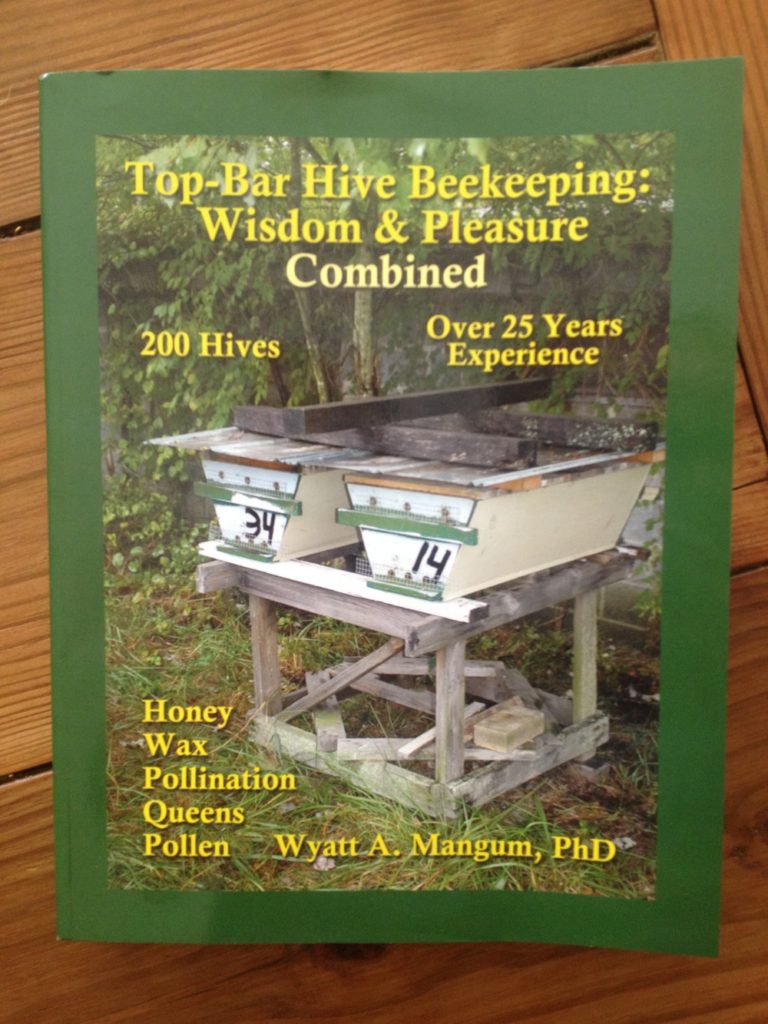
2. Read Books, Blogs And Forums
Beekeeping has become extremely popular in recent years. This means there is a lot of information available on the web. I vastly underestimated how valuable forums are when getting started with beekeeping. Ask a question on the forum and you will have several answers in 24 hours. It is a huge source of information when you want lots of specific answers and nobody to ask.
There are also many localized beekeeping groups on Facebook as well. We would advise finding a group for your state or region instead of a national beekeeping page. The local advice is much more helpful than that from beekeepers in different climates.

2. Read Books, Blogs And Forums
Beekeeping has become extremely popular in recent years. This means there is a lot of information available on the web. I vastly underestimated how valuable forums are when getting started with beekeeping. Ask a question on the forum and you will have several answers in 24 hours. It is a huge source of information when you want lots of specific answers and nobody to ask.
There are also many localized beekeeping groups on Facebook as well. We would advise finding a group for your state or region instead of a national beekeeping page. The local advice is much more helpful than that from beekeepers in different climates.
Great Beekeeping Books:
Top-bar hive beekeeping,” by Wyatt Mangum
Practical Beekeeper” by Michael Bush
Honey Bee Biology by Dewey Caron.
We sell a lot of beginner beekeeping books and you can find all the beginner focused books we recommend here.
Great Beekeeping Books:
Top-bar hive beekeeping,” by Wyatt Mangum
Practical Beekeeper” by Michael Bush
Honey Bee Biology by Dewey Caron.
We sell a lot of beginner beekeeping books and you can find all the beginner focused books we recommend here.
Great Beekeeping Blogs To Reference Are:
Great Beekeeping Blogs To Reference Are:
Beekeeping Forums:
Beekeeping Forums:
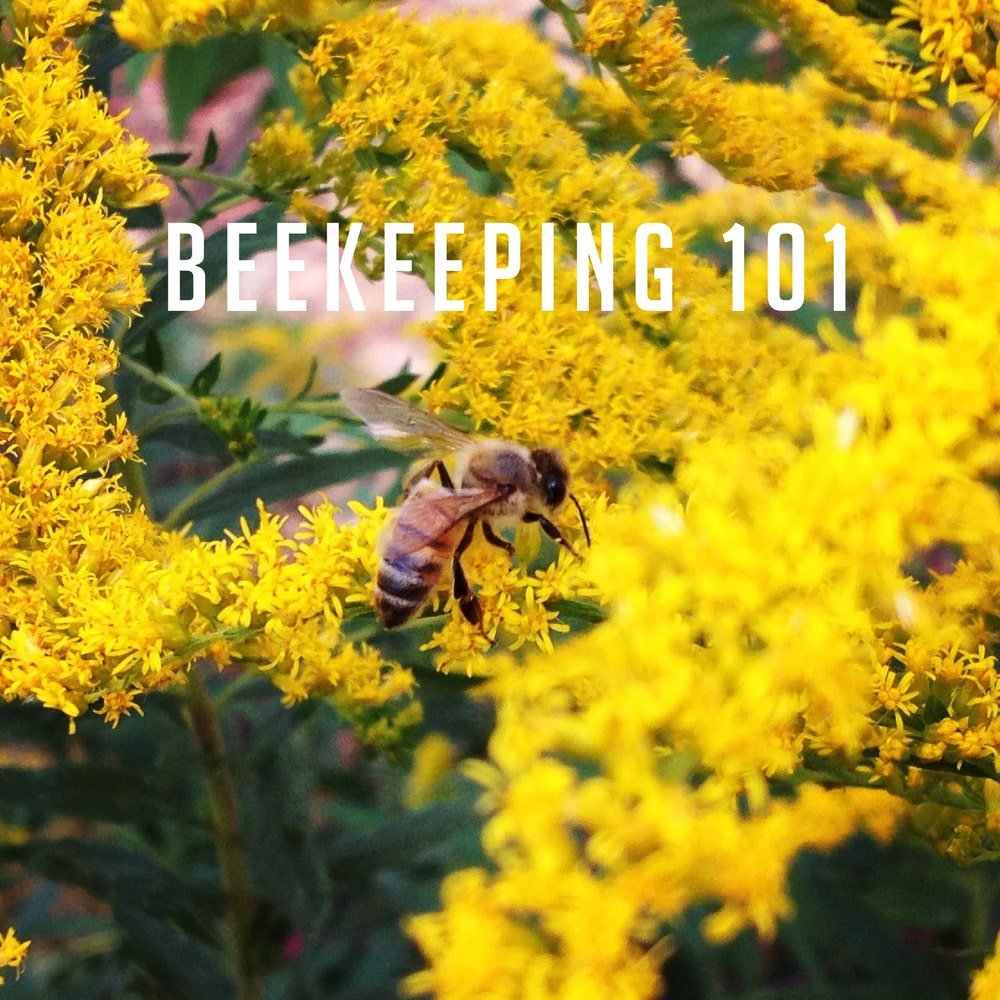
3. Find A Course Locally Or Online
You can’t beat actually meeting beekeepers in your area. It’s a huge resource to have because all beekeepers and locations are different. These beekeeping courses range from a simple introduction to bees to full courses that train you to become a Master Beekeeper.
The class that are in-person are much better and more rewarding that the online classes, but sometimes the online classes are all that you can do.
Checkout the classes we offer from Foxhound Bee Company.

3. Find A Course Locally Or Online
You can’t beat actually meeting beekeepers in your area. It’s a huge resource to have because all beekeepers and locations are different. These beekeeping courses range from a simple introduction to bees to full courses that train you to become a Master Beekeeper.
The class that are in-person are much better and more rewarding that the online classes, but sometimes the online classes are all that you can do.
Checkout the classes we offer from Foxhound Bee Company.
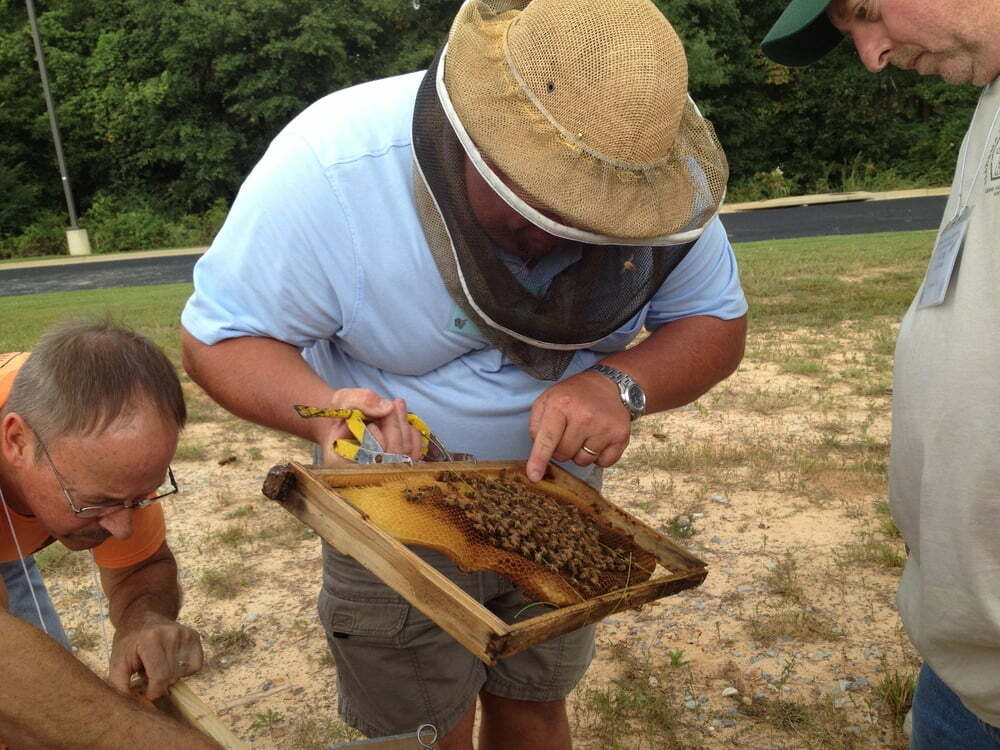
4. Visit Other Beekeepers' Hives
You can read 10 beekeeping books or you can visit one beekeeper’s apiary. Even if the bees aren’t flying, there is so much to learn from seeing another beekeeper’s bees. Beekeeping is as much an art as a science, and it is amazing to watch an experienced beekeeper handle their bees.
If you are local to us in Birmingham, you can attend one of our hive tours to get a chance to open a hive up for yourself.
If you get the opportunity, this is by far the best thing you can do before getting your own colony of bees.

4. Visit Other Beekeepers' Hives
You can read 10 beekeeping books or you can visit one beekeeper’s apiary. Even if the bees aren’t flying, there is so much to learn from seeing another beekeeper’s bees. Beekeeping is as much an art as a science, and it is amazing to watch an experienced beekeeper handle their bees.
If you are local to us in Birmingham, you can attend one of our hive tours to get a chance to open a hive up for yourself.
If you get the opportunity, this is by far the best thing you can do before getting your own colony of bees.

5. Ask Your Neighbors How They Feel
Your neighbor holds the trump card. Even if it is legal on your property, it is important to be a good neighbor. Want to be on the fast lane to being disappointed? Then keep bees right next to your neighbor’s fence.
Talk with your neighbors about what they think and educate them as much as you educate yourself. It is more important in suburban/urban settings than in rural areas. A little promised honey will probably grease the wheels.
Neighbors will usually have a lot of questions, so it’s best to be able to answer some of the basic ones about bees before you start the conversation.
Here is a great page that answers a lot of those questions your neighbor might have.

5. Ask Your Neighbors How They Feel
Your neighbor holds the trump card. Even if it is legal on your property, it is important to be a good neighbor. Want to be on the fast lane to being disappointed? Then keep bees right next to your neighbor’s fence.
Talk with your neighbors about what they think and educate them as much as you educate yourself. It is more important in suburban/urban settings than in rural areas. A little promised honey will probably grease the wheels.
Neighbors will usually have a lot of questions, so it’s best to be able to answer some of the basic ones about bees before you start the conversation.
Here is a great page that answers a lot of those questions your neighbor might have.
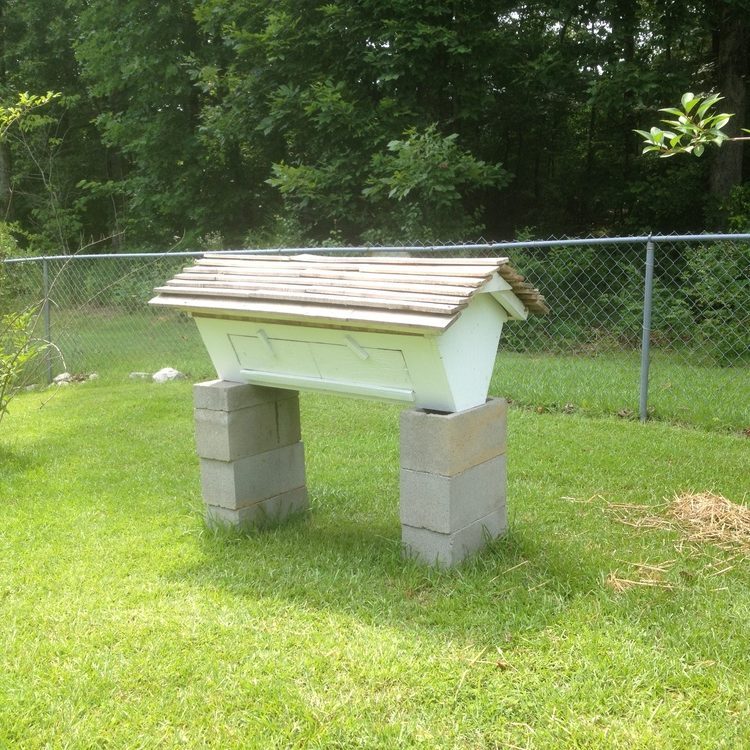
6. Find A Location For Your Bees
Location for the bees will dictate whether you have a good experience or a bad experience with your bees. If they are difficult to get to or are in a location that is hard to work around, that is not good. Bees also struggle more in shaded areas than in sunny areas.
When we teach classes, we always express the importance in finding a place that is good for you and your neighbors, as well as for the bees. This is usually on the side of the property where the neighbors do not go and in a sunny spot so the bees can maintain their hive easier.
A colony of bees will do better in full sun year around than they will in a space that gets partial sun during the day. It’s very hard to move a colony of bees, so it’s important to the get the location right the first time.

6. Find A Location For Your Bees
Location for the bees will dictate whether you have a good experience or a bad experience with your bees. If they are difficult to get to or are in a location that is hard to work around, that is not good. Bees also struggle more in shaded areas than in sunny areas.
When we teach classes, we always express the importance in finding a place that is good for you and your neighbors, as well as for the bees. This is usually on the side of the property where the neighbors do not go and in a sunny spot so the bees can maintain their hive easier.
A colony of bees will do better in full sun year around than they will in a space that gets partial sun during the day. It’s very hard to move a colony of bees, so it’s important to the get the location right the first time.
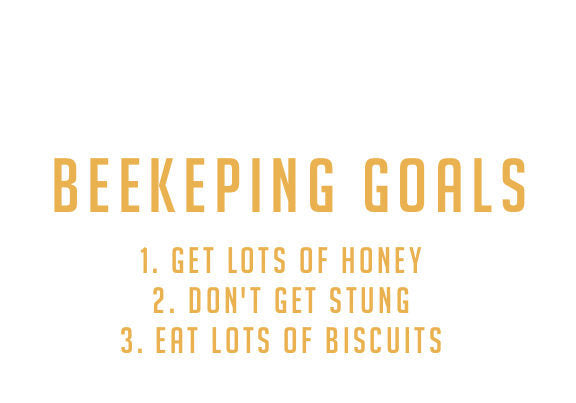
7. Decide On Your Beekeeping Goals
Whether you want bees for pollination or for honey will dictate the equipment you buy. Top bars are typically easier to handle and access if you want pollination and a little honey. If you want lots of honey and don’t mind lifting, Langstroth hives are a better option.
One of the tough things we didn’t realize when we got started was that your beekeeping goals will help you figure out what you want to do. There are a lot of great goals to set in beekeeping, but you want to make sure you focus on what is important.
Your first year, the goal for your hives should be for them to survive the winter. 2nd year would be to be able to harvest a little honey and also survive the winter. As your experience grows, so does your goals.

7. Decide On Your Beekeeping Goals
Whether you want bees for pollination or for honey will dictate the equipment you buy. Top bars are typically easier to handle and access if you want pollination and a little honey. If you want lots of honey and don’t mind lifting, Langstroth hives are a better option.
One of the tough things we didn’t realize when we got started was that your beekeeping goals will help you figure out what you want to do. There are a lot of great goals to set in beekeeping, but you want to make sure you focus on what is important.
Your first year, the goal for your hives should be for them to survive the winter. 2nd year would be to be able to harvest a little honey and also survive the winter. As your experience grows, so does your goals.
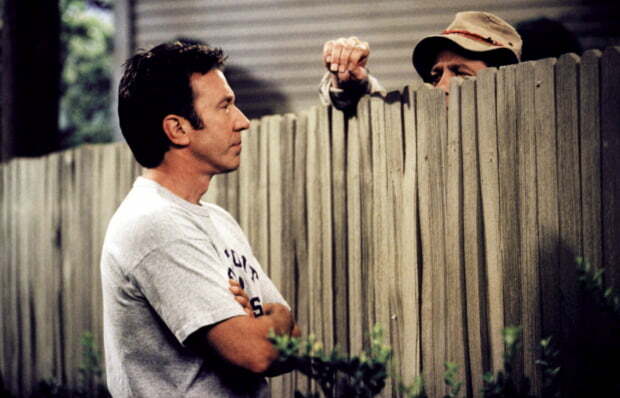
8. Find Someone To Help You
If you start keeping bees, you are guaranteed to have questions. Find somebody to ask when you need help. A quick text and a picture will save you a headache later.
You can find somebody in a local beekeeping club or through a facebook group. Both are good places to meet other beekeepers and start building relationships that are mutually beneficial.
Beekeeping is also more fun with somebody else because one person can hold a frame while the other takes pictures. As you get more hives, it can become a lot of work so an extra person is very helpful.

8. Find Someone To Help You
If you start keeping bees, you are guaranteed to have questions. Find somebody to ask when you need help. A quick text and a picture will save you a headache later.
You can find somebody in a local beekeeping club or through a facebook group. Both are good places to meet other beekeepers and start building relationships that are mutually beneficial.
Beekeeping is also more fun with somebody else because one person can hold a frame while the other takes pictures. As you get more hives, it can become a lot of work so an extra person is very helpful.
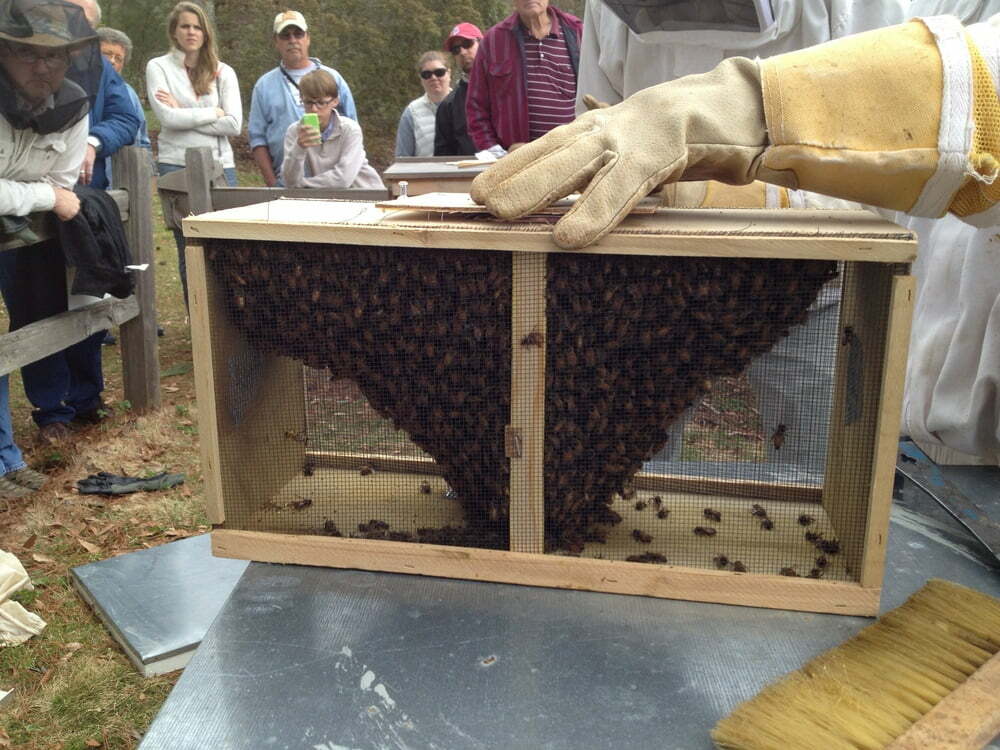
9. Order Your Bees
There are many ways to obtain bees, but beginners only have a few reasonable ones. Packages and nucs are the traditional way. Don’t know the difference between a Package and a Nucleus Hive, read more here. Nucleus hives are more user friendly and packages are easier and cheaper to obtain. Bees sell out quickly, so order yours before the end of January to have any shot at getting some the easy way.
Read our Beekeeping 101 Page, “Where Do I Get Bees”
We sell bees, but do not ship them out. Nucleus hives have a much better success rate than package bees, so nucleus hives are the only type of hive that we sell. If you are able to drive to Birmingham to pickup bees, we recommend checking out our nucleus hive page for more details.
Most beginner beekeepers order their bees in the fall/winter/early spring for pickup during March, April, May, June or July. Nucleus hives and package bees do sell out quickly, so we do recommend making that your first task if you decide to keep bees.

9. Order Your Bees
There are many ways to obtain bees, but beginners only have a few reasonable ones. Packages and nucs are the traditional way. Don’t know the difference between a Package and a Nucleus Hive, read more here. Nucleus hives are more user friendly and packages are easier and cheaper to obtain. Bees sell out quickly, so order yours before the end of January to have any shot at getting some the easy way.
Read our Beekeeping 101 Page, “Where Do I Get Bees”
We sell bees, but do not ship them out. Nucleus hives have a much better success rate than package bees, so nucleus hives are the only type of hive that we sell. If you are able to drive to Birmingham to pickup bees, we recommend checking out our nucleus hive page for more details.
Most beginner beekeepers order their bees in the fall/winter/early spring for pickup during March, April, May, June or July. Nucleus hives and package bees do sell out quickly, so we do recommend making that your first task if you decide to keep bees.
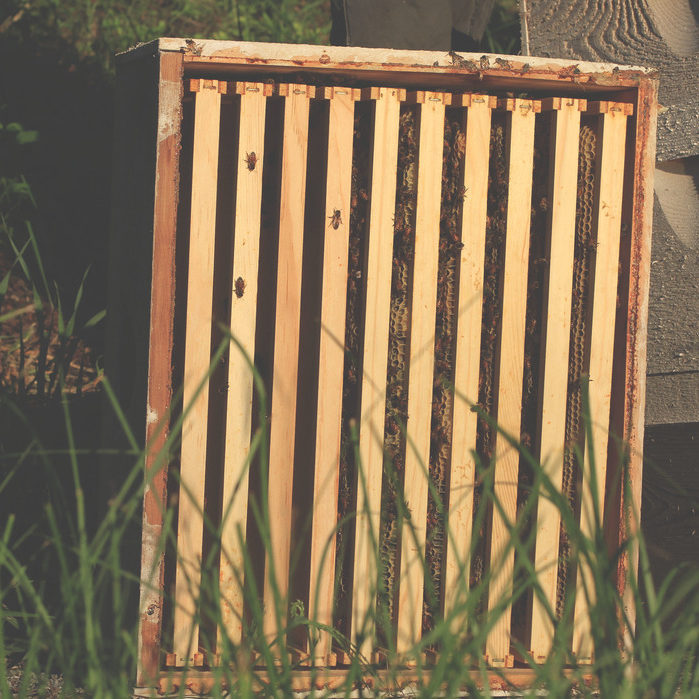
10. Order Your Equipment
Equipment can be hard to get as well, so order yours just after you get your bees. Most equipment requires assembly, so build it before they come or you are going to be a big stinging heap of trouble.
Our business Foxhound Bee Company has been selling beekeeping supplies since 2014 and this is something we take very seriously. We offer very high quality equipment that is made well and will last a long time. We don’t cut corners and do as good a job as we can to help our customers. Just read our reviews on google.
If you do decide to keep bees, we would love it if you checked out our equipment page. We have all types of hive sizes, jackets, suits, smokers, hive tools. We don’t sell everything you might need, but we sell everything you would need your first year.
To read more about equipment, visit our Beekeeping 101 page, “What Beekeeping Equipment Do I Need”

10. Order Your Equipment
Equipment can be hard to get as well, so order yours just after you get your bees. Most equipment requires assembly, so build it before they come or you are going to be a big stinging heap of trouble.
Our business Foxhound Bee Company has been selling beekeeping supplies since 2014 and this is something we take very seriously. We offer very high quality equipment that is made well and will last a long time. We don’t cut corners and do as good a job as we can to help our customers. Just read our reviews on google.
If you do decide to keep bees, we would love it if you checked out our equipment page. We have all types of hive sizes, jackets, suits, smokers, hive tools. We don’t sell everything you might need, but we sell everything you would need your first year.
To read more about equipment, visit our Beekeeping 101 page, “What Beekeeping Equipment Do I Need”
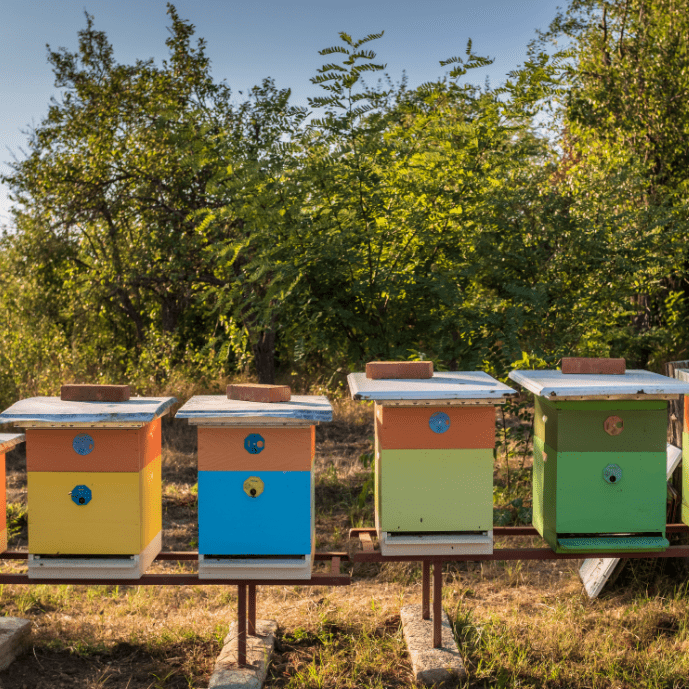
11. Set Up Your Equipment
When you get your supplies and equipment in, it’s good to familiarize yourself with what you have. There are a lot of supplies to make sense of and not all of it is immediately necessary. The important pieces are the actual wood boxes, frames/foundation, the smoker, the hive tool, the feeder and the protective gear. These are the supplies you need on day one.
Before the bees arrive, it’s smart to have everything setup and ready to go. Know how to use a smoker, setup your hives on their stand in the full sun. Feel good about the location before the bees actually come.

11. Set Up Your Equipment
When you get your supplies and equipment in, it’s good to familiarize yourself with what you have. There are a lot of supplies to make sense of and not all of it is immediately necessary. The important pieces are the actual wood boxes, frames/foundation, the smoker, the hive tool, the feeder and the protective gear. These are the supplies you need on day one.
Before the bees arrive, it’s smart to have everything setup and ready to go. Know how to use a smoker, setup your hives on their stand in the full sun. Feel good about the location before the bees actually come.
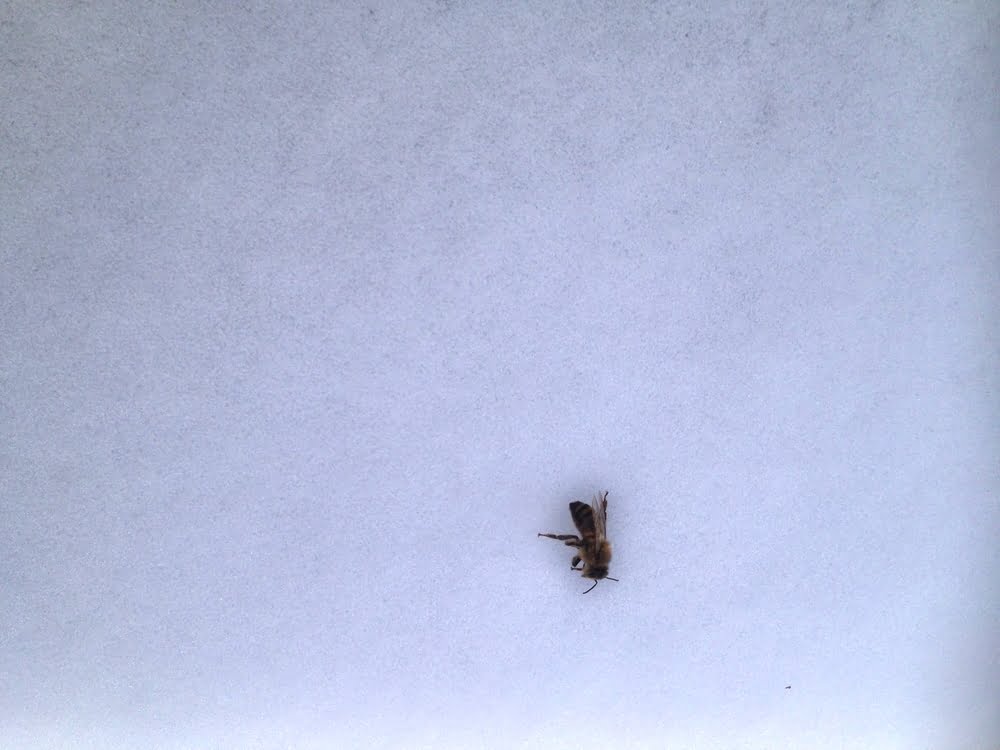
12. Install Your Colony Of Bees And Make Sure They Survive
There are many ways to install a colony of bees into your new beehive. The technique that you use depends on if you are starting with a packing of bees or a nucleus hive. The nucleus hive is much easier to install and is much more successful at surviving the first year than a package of bees. There is much more than we can put here in a paragraph about getting through your first year, but it’s important to keep that first year goal in mind, help them survive the winter.
Most bees die during the winter, specifically the month leading up to spring weather. Until your bees survive their first winter, you are a bee haver. After you get them through their first winter, you could then become a beekeeper.
Much of how they do during the winter, depends greatly on what the beekeeper does during the summer and fall.

12. Install Your Colony Of Bees And Make Sure They Survive
There are many ways to install a colony of bees into your new beehive. The technique that you use depends on if you are starting with a packing of bees or a nucleus hive. The nucleus hive is much easier to install and is much more successful at surviving the first year than a package of bees. There is much more than we can put here in a paragraph about getting through your first year, but it’s important to keep that first year goal in mind, help them survive the winter.
Most bees die during the winter, specifically the month leading up to spring weather. Until your bees survive their first winter, you are a bee haver. After you get them through their first winter, you could then become a beekeeper.
Much of how they do during the winter, depends greatly on what the beekeeper does during the summer and fall.












